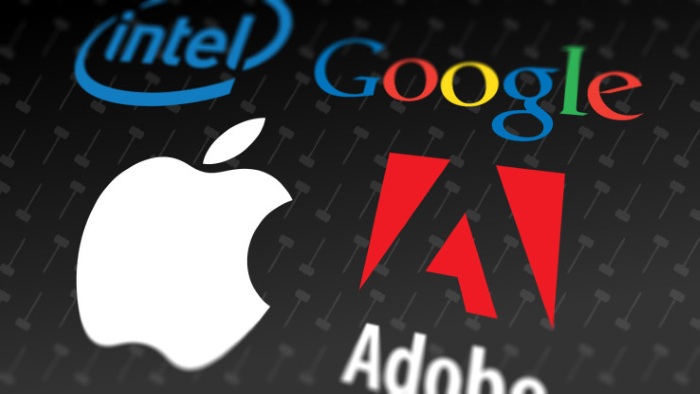In hopes of making an embarrassing class-action antitrust suit go away, Apple, Google, Intel, and Adobe have offered a joint payment of $415 million to settle the case.

The figure is up from the $324.5 million offered this past spring.
For those unfamiliar with the case, it stems from these companies (along with Pixar, Lucasfilm, and Intuit) making illegal agreements to not directly solicit one another’s employees. This secret “no-poaching” deal not only handicapped the engineers’ mobility between companies, but affected their pay too (as they had no leverage when trying to argue for pay increases). On the flipside, these deals benefited the companies, who were able to retain top-level talent at moderate salaries.
Revelation of these secret agreements came to light following an investigation by the Justice Department, which resulted in antitrust complaints against Google, Apple, Intel, Intuit, Adobe, Pixar, and Lucasfilm. The companies settled these Justice Department cases without admitting guilt or paying fines; additional private lawsuits were filed afterwards, all of which were eventually consolidated.
Fortunately for Pixar, Lucasfilm, and Intuit, these companies were able to settle their suit in 2013 before it was approved as a class action; they paid a total of $20 million.
Google, Apple, Intel, and Adobe are now up against 64,000 software engineers in a separate class-action suit, though it appears to be nearing an end. Lawyers representing the software engineers have agreed to the new figure of $415 million; unfortunately, this does not automatically end the case. You see, the $324.5 million was also accepted by the plaintiffs’ lawyers, but later rejected by the judge, Lucy H. Koh, overseeing the case as inadequate. Specifically, she denied the settlement after she agreed with a complaint by one of the suit’s five named plaintiffs, Michael Devine, who said it was not enough to deter other companies from making the same agreements.
All parties appear to be eager and ready to get this settlement through.
Many of the engineers and developers in the case want to receive their pay of the settlement and move on from the case.
For the lawyers, their cut of the payout could be as much as 25%. If, however, the case goes to trial, they might lose, in which they (and the 64,000 class-action plaintiffs) would get nothing.
For the companies, the settlement figure will not have much effect on their bottom line as these are some of the wealthiest businesses in the world. Should the case go to trial, though, they run the risk of a jury possibly awarding the plaintiffs billions of dollars, a figure that could hurt these companies much more. To put the figure into perspective, at one point during the proceeding, the lawyers for the plaintiffs said the damages caused by these companies’ private no-poaching deals were in the neighborhood of $3 billion — a figure that could be tripled should they be found guilty.
Should a settlement not be agreed to, a trial will begin in spring 2015.
Via nytimes.com
Advertisement
Learn more about Electronic Products Magazine





